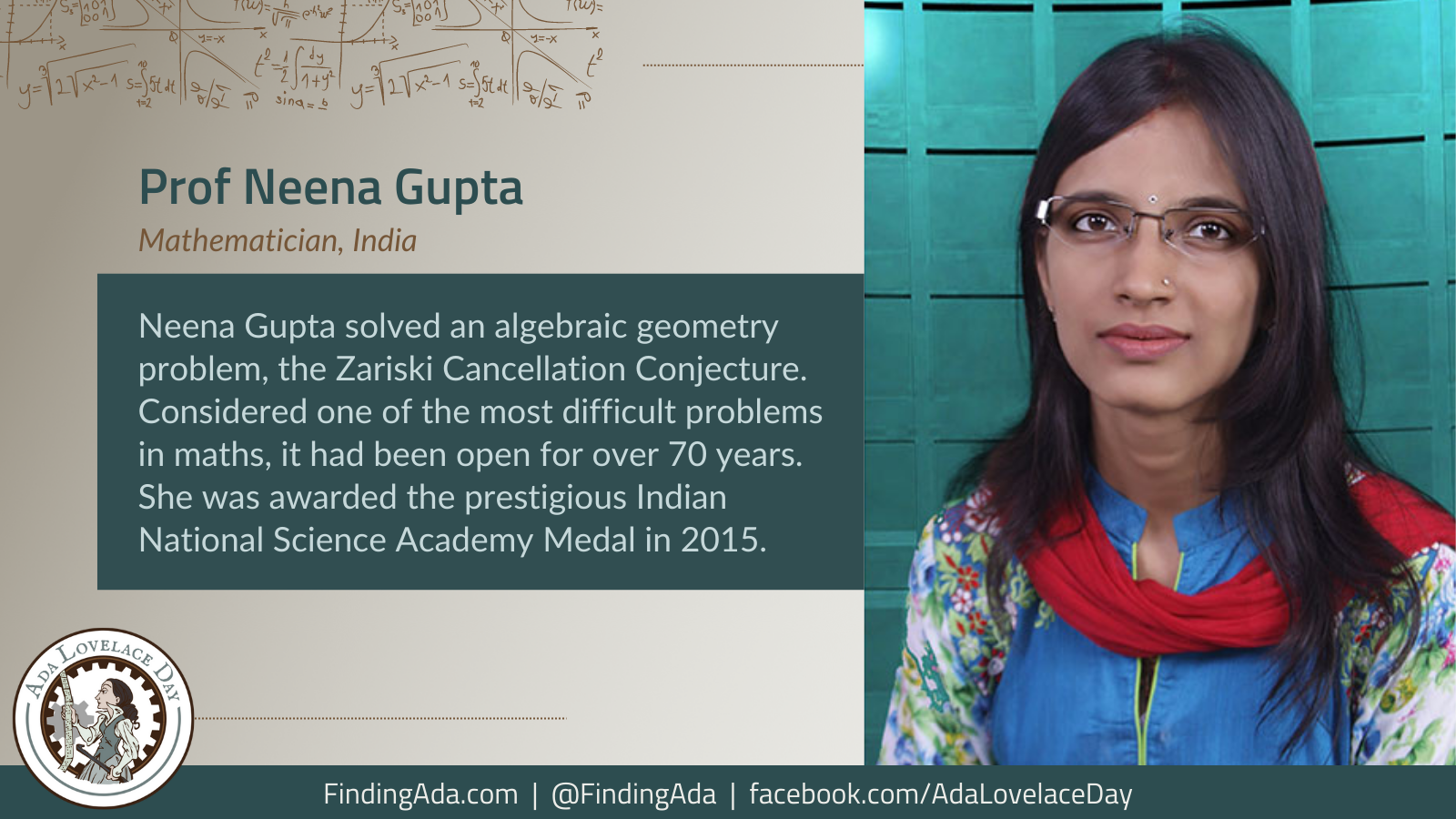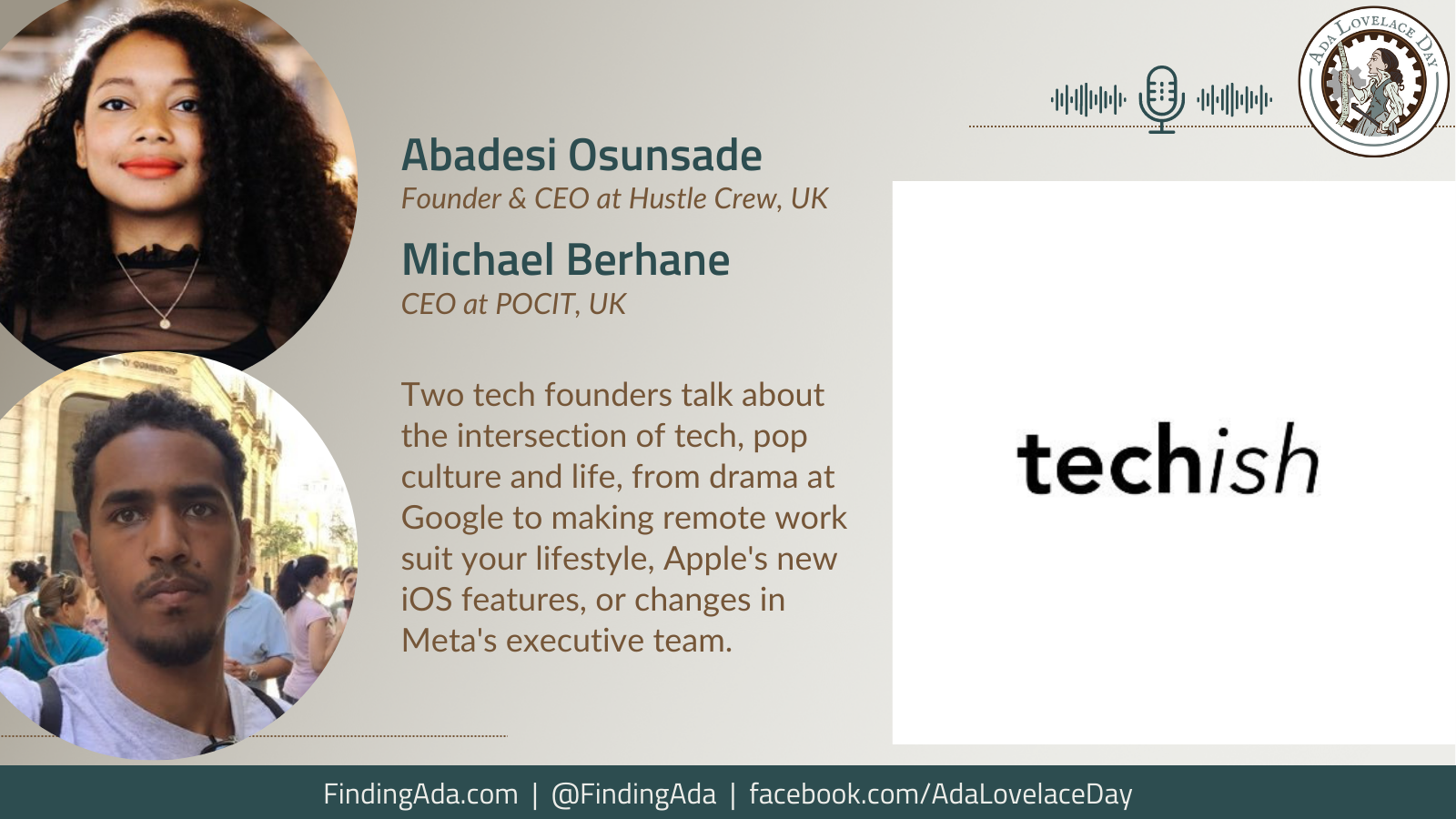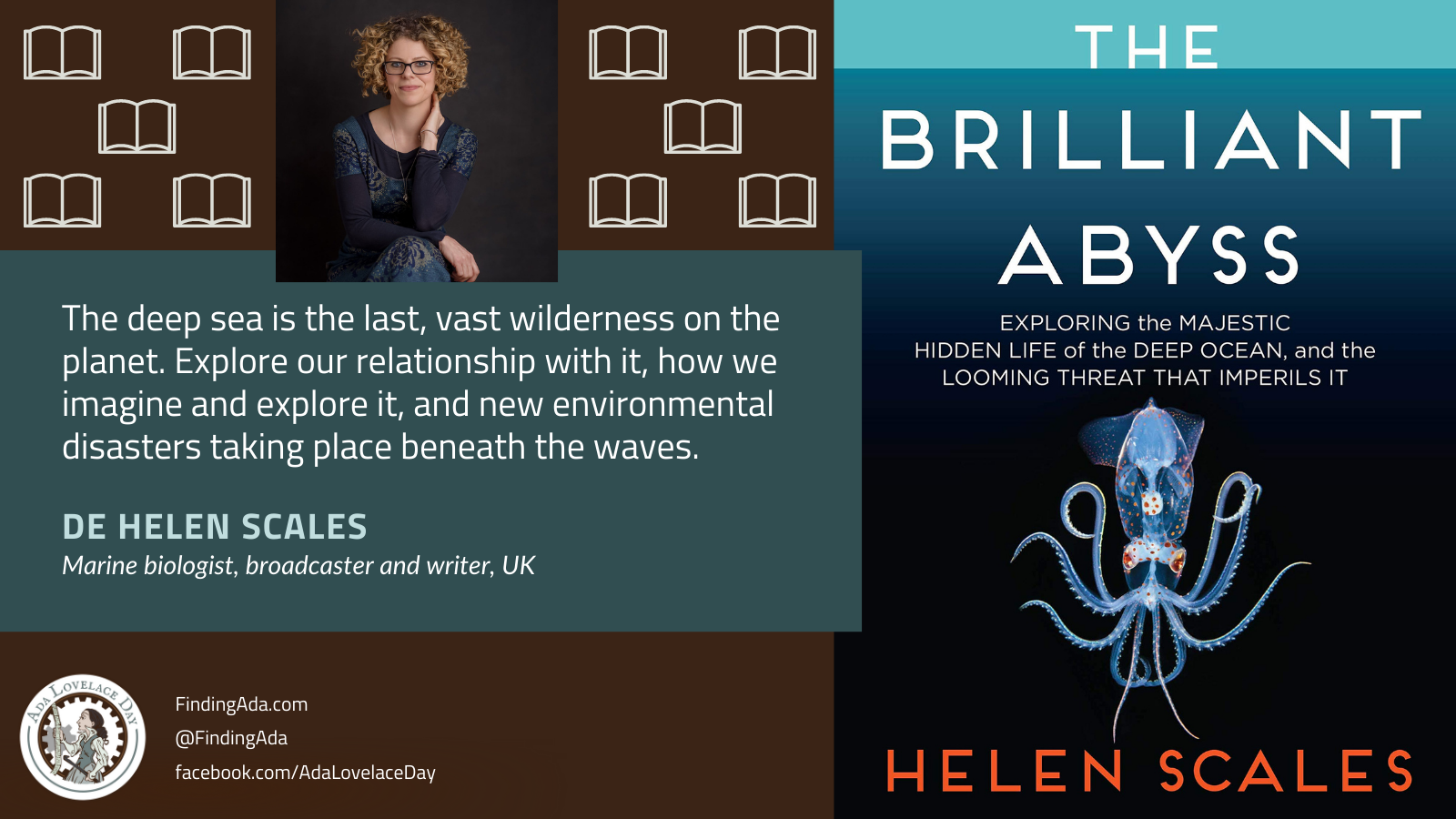
Professor Neena Gupta
Neena Gupta, born in India in 1984, is a mathematician specialising in commutative algebra and affine algebraic geometry. She is based at the Indian Statistical Institute (ISI).
Gupta used to spend hours doing maths as a young girl and loved solving mathematical problems. She was initially taught by her mother before going to school and then college, graduating in Mathematics. She eventually received a PhD in algebraic geometry and then became a visiting scientist at the ISI. She took up a short fellowship at the Tata Institute of Fundamental Research and then won an assistant professorship position from the Indian Department of Science and Technology, allowing her to return to the ISI. She is now an associate professor at the Theoretical Statistics and Mathematics Unit at ISI.
In 2014, Gupta solved the Zariski Cancellation Problem originally posed in 1949 by Oscar Zariski, who was a highly influential mathematician in algebraic geometry. The Zariski Cancellation Problem is considered to be one of the most difficult problems in maths, and was a topic that Gupta ruminated on while she was completing her PhD. She describes the problem thus: “The cancellation problem asks that if you have cylinders over two geometric structures, and that have similar forms, can one conclude that the original base structures have similar forms?”. For completing this problem, she was awarded the Young Scientists Award, with the Indian National Science Academy considering her work the best research they had seen in algebraic geometry in some time.
Gupta has also won other awards for her work. She won the Saraswathi Cowsik Medal (2013), the Swarnajayanti Fellowship (2014), the A.K. Agarwal Award (2015), and the Ramanujan Prize for Young Mathematicians from Developing Countries (2021). She was also the youngest recipient of the highly coveted Shanti Swarup Bhatnagar (SSB) Prize in 2019, which is awarded by the Prime Minister of India and provides a monthly endowment until age 65. She is still studying Zariski today.
Further Reading
- Neena Gupta (mathematician), Wikipedia
- Dr Neena Gupta, Indian Statistical Institute
- Meet Neena Gupta, Who Solved A Math Problem That Remained Unsolved For Almost 70 Years, Ananta Sharma, Storypick, 30 December 2015
- At 35, Dr Neena Gupta Is The Youngest Awardee Of Shanti Swarup Bhatnagar Prize for Cracking 70-Year-Old Mathematics Conundrum, First Post, 11 December 2019
- Celebrating Women in STEM: Dr. Neena Gupta, Madalyn Weston, UKMC Roo News, 3 April 2020
- Meet Mathematician Dr Neena Gupta, Who Solved 70-Year-old Zariski Cancellation Problem, Arunima Sharma, She The People, 16 December 2020
- No one thought I could make it: Ramanujan Prize winner Neena Gupta who solved Zariski problem, Shubhangi Misra, The Print, 15 December 2021
- How 2021 Ramanujan Prize winner Neena Gupta is busting myths in Mathematics, Suha Roy, Telegraph India, 17 January 2022
- Professor Neena Gupta receives Ramanujan Prize for Young Mathematicians, Department of Science & Technology, February 2022

